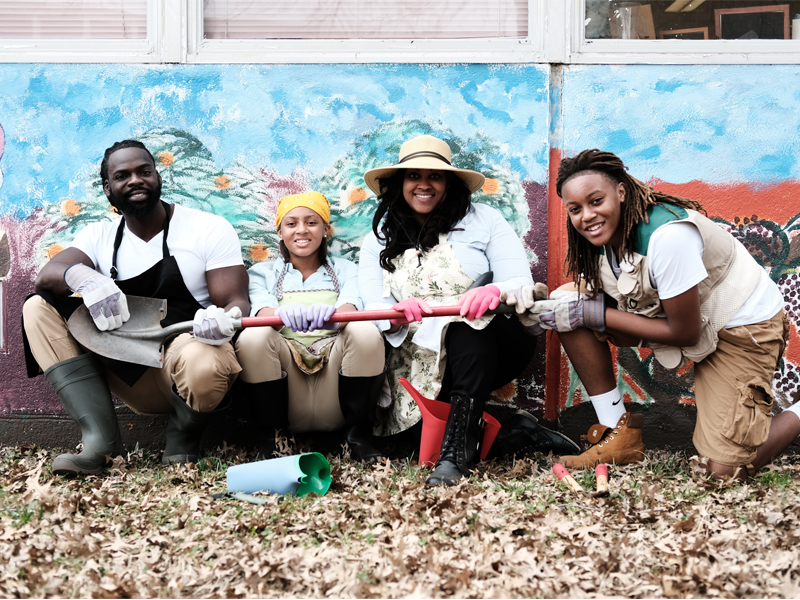Hampton-based program helps local youth thrive in the face of challenges
Helping families of children with mental, emotional, or behavioral challenges is something dear to Ali Afonja’s heart, and that is part of the reason that he and his wife, Stephanie, started Family Restoration Services in Hampton, Va.
The Afonjas opened FRS in 2007 as a way to address the needs of disadvantaged youth without having to send them away for treatment. The organization provides non-traditional counseling and therapeutic services to children aged birth to 21 with mental health issues including behavioral, emotional, intellectual, and developmental disabilities.
The main focus of FRS is to offer a fitness outlet for children to channel their emotions. Ali Afonja grew up with a sibling with special needs and saw the struggle of his parents in finding resources, and he also used sports as a way to handle his own issues. FRS partners with city youth sports and other organizations to offer the children they service counseling and instruction in numerous physical activities. Children can partake in baseball, basketball, bowling, boxing, dancing, golf, gymnastics, martial arts, skateboarding, soccer, swimming, and track.
Therapeutic sports and recreation “teaches children to use their bodies to regulate their emotions,” says Ali Afonja. “It’s a way for them to express themselves that isn’t destructive to themselves or others.”
FRS now includes four quadrants of wellness: fitness, spiritual, cognitive, and nutrition. The Alfonjas started a community learning garden to teach children about healthy eating. Children work in the garden, planting and harvesting the fruits and vegetables.
“Gardening has spiritual and emotional health benefits,” points out Stephanie Afonja. “The children care for the crops, and we send them home with fresh produce along with recipes for fresh salads and other healthy options.”
In addition to participating in a sport of their choice and tending to the garden, children also learn yoga and other forms of meditation as a way to keep their emotions in check. FRS also has a substance abuse program, vocational services, and music and art therapy, or expressive therapy. In expressive therapy, children create their own albums, videos, or photographs.
“We are always looking to connect children with different activities to help them develop a better sense of themselves,” Stephanie Afonja says. “We use a holistic model to adjust children’s behavior. By using a holistic approach, we are providing them with tools they can use beyond their time with us.”
A trained staff of roughly 25 counselors, therapeutic sports specialists (including former pro sports figures), parent mentors, and other behavioral specialists assist the Afonjas with caring for the children. The staff knows each child’s individual needs and goals, and works with them to achieve those goals.
“The kids are happy to participate in something that they enjoy, and are good at,” Stephanie Afonja says. “It helps them to reshape their identities in a positive way.”
Having the support of other organizations in the community also helps.
“We are proud the children can go into those environments and be successful,” shares Stephanie Afonja. “The kids who have come into this program have gotten better. Families are saying it has been helpful. We are pleased.”
The Afonjas also periodically offer health workshops to the community through their non-profit, Families Overcoming Obstacles Together (FOOT).
The couple would like to expand FRS’s sports programs to include equestrian, fencing, and rugby as well as expand the community learning garden. In addition, the Afonjas will launch an online service, Holistic Family Solutions, this spring. Holistic Family Solutions will provide instructional videos, articles, and other content related to their four quadrants of wellness to families outside of Hampton.
“Our mission is to transform the way services are being provided to young people who suffer from mental and behavioral deficiencies,” says Ali Afonja. “We are in the most important business out there because we are dealing with human beings, and, more importantly, we are dealing with our children. We have to get it right.

